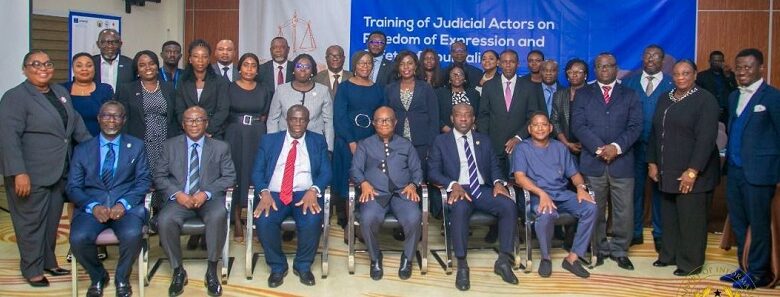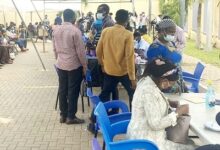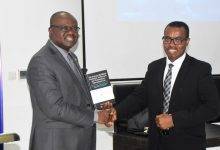
Minister for Information, Kojo Oppong Nkrumah, has called on judges to punish perpetrators of attacks against journalists with speed and severity irrespective of their social status and political affiliations.
According to the Minister, who also doubles as the Member of Parliament (MP) for Ofoase Ayirebi Constituency in the Eastern Region, this was urgently required to stem the tide of attacks against journalists in the country.
He was speaking at the opening ceremony of a training workshop for judges on the need to protect freedom of expression and safety of journalists in Hoon Monday, June 20, 2022.
“The wheels of justice may grind slowly, but My Lord Chief Justice, the feedback I have from my media colleagues is that we believe some quick punitive action targeted at the perpetrators of infringements against media practitioners will be appreciated.
“It will be the strongest message to the next batch of state and non-state actors that it is not acceptable to attack journalists no matter how much you disagree with what they say,” the Minister said.
The programme was designed to deepen the capacity of judges in dealing with matters of freedom of expression and safety of journalists, and reinforce their expertise towards fighting abuses against journalists by ensuring prosecution and trial of those responsible for these attacks. The training comprised of 25 judges from both the High and Appeal courts.
Also present at the event were the UNESCO Country Representative, Mr Abdourahmane Diallo, Representative of the Chief Justice, Professor Dominic Dennis Adjei, who is also a Justice of the Court of Appeal, as well as other well-known dignitaries.
Mr Diallo, on his part, said the issue of freedom of expression and the safety of journalists was a very delicate area which demanded the attention of duty-bearers, arbitration authorities, and the security services.
This he explained was because freedom of expression and the safety of journalists were fundamental freedoms and indices determining how compliant or negligent a country was relative to its constitutional provisions on these fundamental freedoms.
Prof. Justice Adjei underscored the need for collaboration between stakeholders within the media space to build a more robust ecosystem that would ensure that infringements on the safety of journalists were reduced to the barest minimum if not eradicated entirely.
The Ministry of Information, in addressing the issue of attacks on journalists, has set in motion a number of programmes with the objective of supporting the Ghanaian media. The engagements since 2019 have led to the development of some key interventions aimed at supporting the media industry confront the key issues it was faced with.
First was the inauguration of the office of the Coordinated Mechanism on the Safety of Journalists (CMSJ) under the National Media Commission (NMC). Key to the operation of this office was the development of a framework for use by all stakeholders to create a safe and conducive environment for the practice of journalism; prevent violence against journalists; protect journalists in danger; and prosecute perpetrators of violence against journalists.
The Ministry through its Media Capacity Enhancement Programme (MCEP) was also providing training for some 250 journalists on emerging issues in journalism. This formed part of collaborative efforts to support the sector which has been challenged in recent times.
The Right to Information (RTI) has also been rolled out in full. This included the training and deployment or designation of RTI officers in the almost 600 government offices nationwide. It also included the set-up of the RTI commission which was making impressive strides in ensuring compliance by public offices to the RTI Act.
BY TIMES REPORTER






